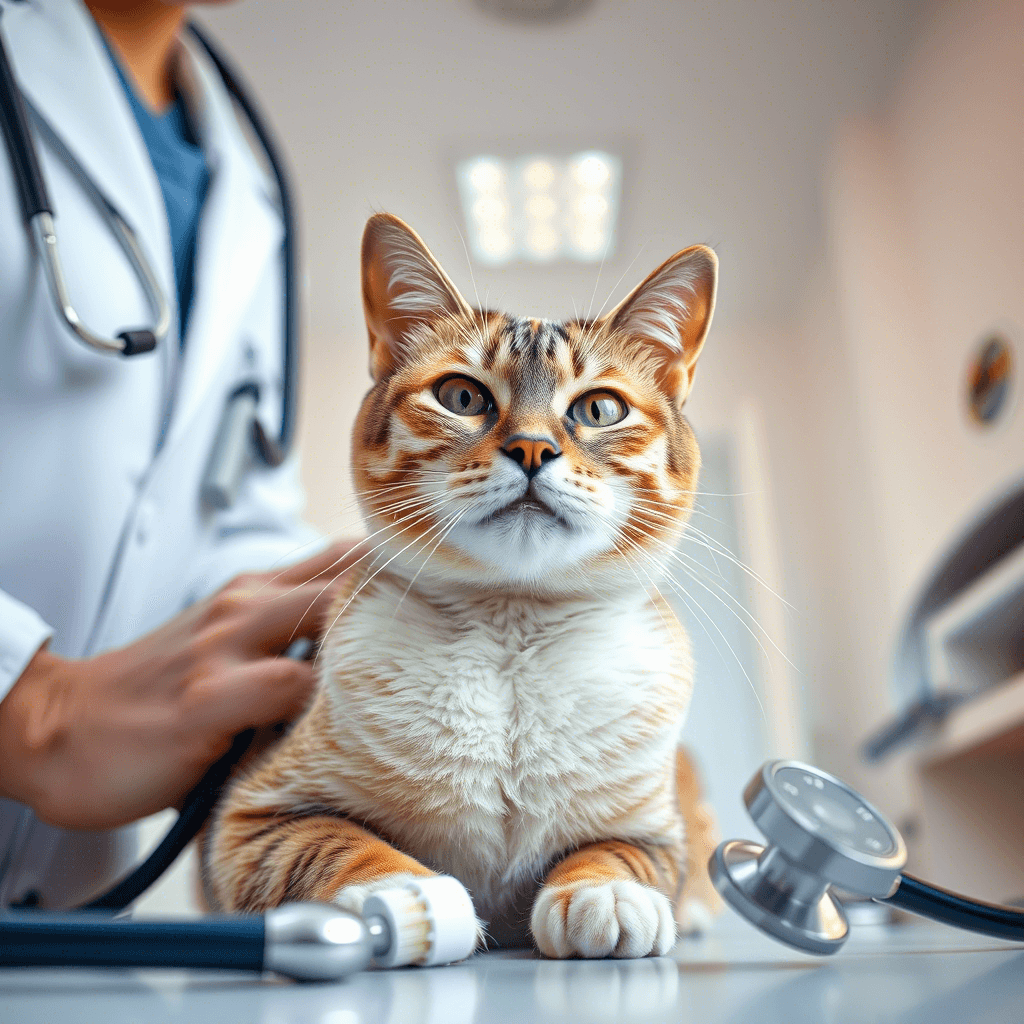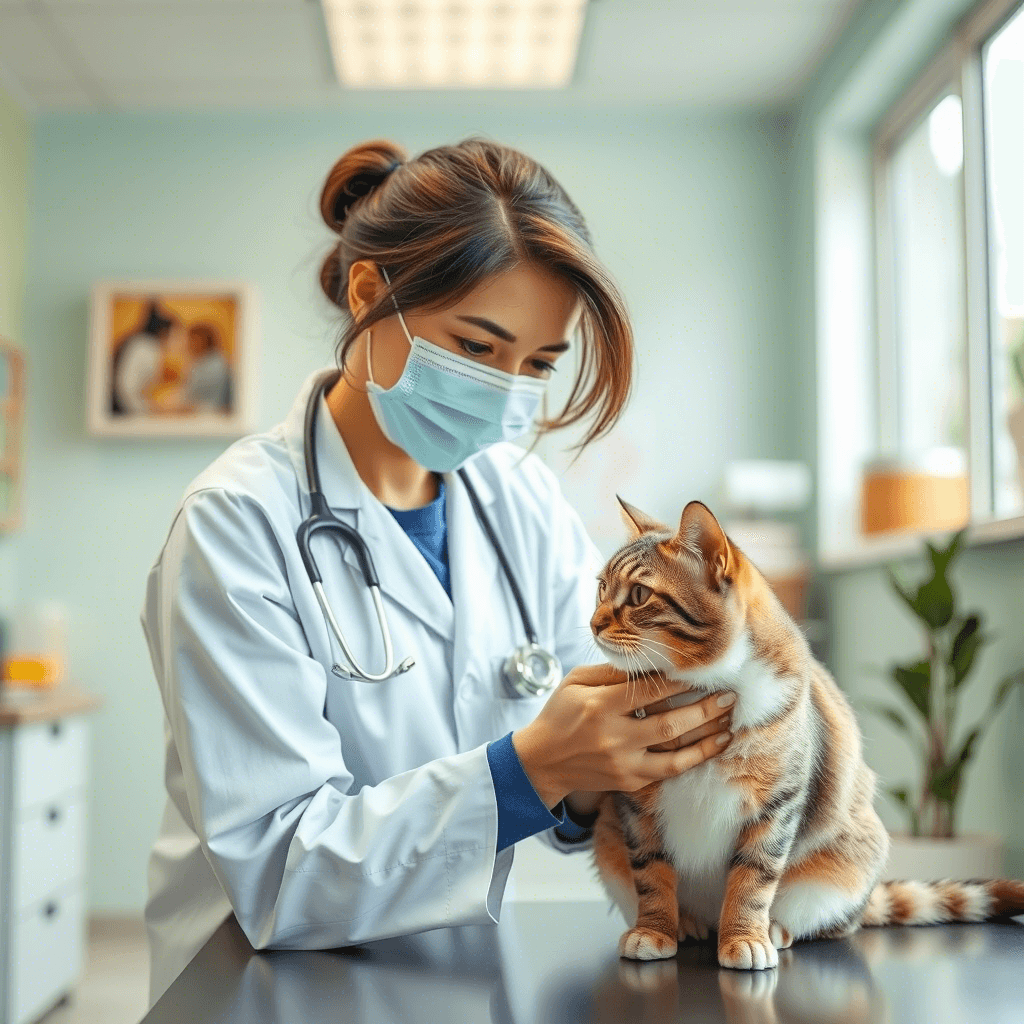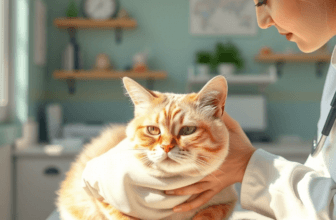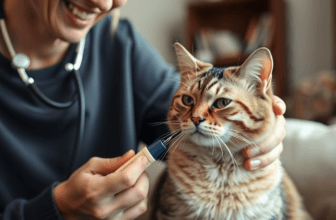
Table of Contents
As your beloved feline companion ages, their health needs become more complex. One common condition affecting older cats is hyperthyroidism, a disorder caused by an overactive thyroid gland. Hyperthyroidism in aging cats can lead to weight loss, increased appetite, and behavioral changes, often leaving pet owners concerned and unsure of how to help.
This article dives deep into hyperthyroidism in aging cats, covering everything from diagnosis to treatment options. Whether you’re noticing unusual symptoms in your cat or simply want to be prepared, this guide will equip you with the knowledge to ensure your furry friend receives the best care possible.

What is Hyperthyroidism in Aging Cats?
Hyperthyroidism occurs when the thyroid gland, located in the neck, produces excessive amounts of thyroid hormones. These hormones regulate metabolism, so an overactive thyroid can wreak havoc on your cat’s body.
Symptoms of Hyperthyroidism in Aging Cats
- Weight loss despite increased appetite
- Hyperactivity or restlessness
- Increased thirst and urination
- Vomiting or diarrhea
- Poor coat condition
- Rapid heart rate
If your cat is displaying any of these symptoms, it’s crucial to consult your veterinarian for a proper diagnosis.
Diagnosing Hyperthyroidism in Aging Cats
Diagnosing hyperthyroidism involves a combination of physical exams, blood tests, and sometimes imaging. Here’s what to expect:
1. Physical Examination
Your vet will check for an enlarged thyroid gland, which is often palpable in cats with hyperthyroidism.
2. Blood Tests
A thyroid panel measures levels of thyroid hormones (T3 and T4). Elevated levels are a strong indicator of hyperthyroidism.
3. Additional Tests
In some cases, your vet may recommend:
- Ultrasound to assess the thyroid gland.
- Radioactive iodine uptake test to confirm the diagnosis.
Early diagnosis is key to managing hyperthyroidism effectively and preventing complications like heart disease or kidney issues.
Treatment Options for Hyperthyroidism in Aging Cats
Once diagnosed, there are several treatment options available. The best choice depends on your cat’s overall health, age, and your budget.
1. Medication
- Methimazole is the most common medication used to control thyroid hormone production.
- Pros: Non-invasive and cost-effective.
- Cons: Requires daily administration and regular blood tests to monitor hormone levels.
2. Radioactive Iodine Therapy
- This treatment involves a single injection of radioactive iodine, which destroys overactive thyroid cells.
- Pros: Highly effective and often curative.
- Cons: Requires specialized facilities and temporary isolation of your cat due to radiation.
3. Surgical Thyroidectomy
- Surgical removal of the thyroid gland is another option.
- Pros: Permanent solution if successful.
- Cons: Risks associated with surgery and anesthesia, especially in older cats.
4. Prescription Diet
- Some cats respond well to a low-iodine diet, such as Hill’s Prescription Diet y/d.
- Pros: Non-invasive and easy to implement.
- Cons: Requires strict adherence to the diet, and not all cats respond favorably.
Managing Hyperthyroidism in Aging Cats

Beyond treatment, managing hyperthyroidism involves ongoing care and monitoring. Here are some tips:
1. Regular Vet Checkups
Frequent blood tests and physical exams are essential to ensure your cat’s thyroid levels remain stable.
2. Monitor Weight and Appetite
Keep track of your cat’s weight and eating habits to detect any changes early.
3. Provide a Stress-Free Environment
Hyperthyroidism can make cats anxious. Create a calm, comfortable space for your pet.
4. Stay Consistent with Treatment
Whether it’s medication, diet, or follow-up appointments, consistency is key to managing the condition effectively.
Why Early Intervention is Crucial
Left untreated, hyperthyroidism can lead to severe complications, including:
- Heart disease
- High blood pressure
- Kidney damage
Early diagnosis and treatment can significantly improve your cat’s quality of life and longevity.
Conclusion
Hyperthyroidism in aging cats is a manageable condition with the right care and treatment. By recognizing the symptoms early and working closely with your veterinarian, you can ensure your feline friend enjoys a happy, healthy life in their golden years.
If you suspect your cat may have hyperthyroidism, don’t wait—schedule a vet appointment today. Your proactive approach could make all the difference.
Sources
- Cornell Feline Health Center – Hyperthyroidism in Cats
- American Veterinary Medical Association – Thyroid Disease in Pets
- VCA Hospitals – Hyperthyroidism in Cats
- Hill’s Pet Nutrition – Hyperthyroidism and Diet
- PetMD – Hyperthyroidism in Cats: Symptoms and Treatment
FAQ : Hyperthyroidism in Aging Cats
What causes hyperthyroidism in aging cats?
Hyperthyroidism is often caused by benign tumors on the thyroid gland. While the exact cause is unknown, factors like diet, environmental toxins, and genetics may play a role.
Can hyperthyroidism in cats be cured?
Yes, radioactive iodine therapy and surgery can cure hyperthyroidism. However, medication and diet management are long-term solutions rather than cures.
Is hyperthyroidism painful for cats?
Hyperthyroidism itself isn’t painful, but it can cause discomfort due to symptoms like rapid heart rate and weight loss. Proper treatment can alleviate these issues.
How long can a cat live with hyperthyroidism?
With proper treatment, cats with hyperthyroidism can live for many years. Early diagnosis and consistent care are key to a positive prognosis.
Can diet alone manage hyperthyroidism in cats?
In some cases, a low-iodine prescription diet can manage hyperthyroidism. However, it’s not effective for all cats and should be used under veterinary supervision.
What are the side effects of hyperthyroidism medication?
Common side effects of methimazole include vomiting, lethargy, and skin irritation. Regular blood tests are necessary to monitor for potential liver or kidney issues.
Is hyperthyroidism more common in certain cat breeds?
Hyperthyroidism can affect any cat, but it’s more commonly seen in older cats, typically those over 10 years of age. There’s no strong evidence linking it to specific breeds.







